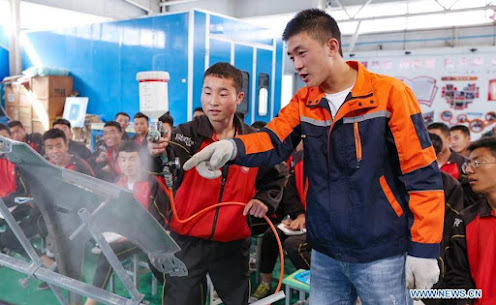These educational arms races are often particularly ferocious in East Asia. In China and South Korea, schoolchildren face nationwide '' high stakes '' tests - the ' gaokao ' in China and the ' suneung' in South Korea.
These tests play a big role in determining whether and where they can go to university. In China's cities, pupils spent 10.6 hours a week on after-school tutoring, according to a report by Frost & Sullivan, a market-research firm.
The governments in both countries have tried to orchestrate a kind of collective disarmament. South Korea imposed a 10 pm curfew on cramming schools in 2009.
Inspectors would go on patrol looking for schools with their lights on. [ Some schools covered their windows with black tape.]
China has been introducing restrictions on after-school tutoring at an increasing pace since 2018. In 2020 it barred tutoring firms from listing on the stock market, raising foreign capital or making a profit.
The strictures have wiped tens of billions of dollars off the market value of China's once-booming edtech sector.
Will these measures work? It is almost impossible to stop families from hiring private tutors to teach their children in their own homes. And if shadow education is successfully curtailed, the arms race can take different forms.
Parents who cannot buy a better education directly can instead buy homes near better schools.
A study by Xuejuan Su of the University of Alberta and Huyai Yu of Renmin University found that when the management of a public elementary school in Beijing is taken over by another better-regarded school, property prices nearby rise by an average of of 7%.
'' Beruf als Politik '' : Both China and South Korea have begun promoting vocational education.
China's latest five-year plan [ which concludes in 2025 ] promises to explore an '' apprenticeship system with Chinese characteristics'' and to '' vigorously cultivate talents with technical skills '', according to one translation.
Some of the edtech firms squeezed out of after-school tutoring are exploring vocational education instead.
The World Students Society thanks Free exchange, The Economist.

.png)


0 comments:
Post a Comment
Grace A Comment!